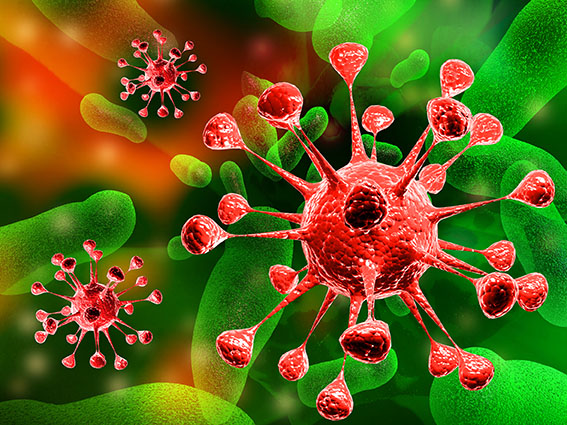Now, more than ever, infection prevention and control are at the forefront of everybody’s mind. At Dekomed, we ensure that healthcare providers can implement the highest standards of infection control and prevention, keeping both patients and workers safe.
What is Infection Prevention and Control?
Infection prevention and control is quite simply the prevention of germs spreading in healthcare settings, including care homes and any NHS Foundation Trust. This involves eliminating harmful germs from equipment and ensuring these germs are not passed to vulnerable people.
What is Infection?
An infection occurs when harmful germs enter our body and multiply, causing our bodies to have an unpleasant reaction to them.
These germs can be transmitted from person to person. The environment itself can also be a source for germs.
This can include:
• Dry surfaces in patient care areas
• Faucets and sinks
• Ventilators
• Catheters and IV lines
• Surgical equipment
Medical and surgical treatment can also spread germs. Urinary catheters, for example, can carry a major risk if not cleaned and disinfected correctly.
People who are most at risk of catching infections are people who already have a weakened immune system. This could be due to them having an underlying medical condition such as diabetes or cancer.
If germs manage to enter the body of a susceptible person, they are at an increased risk as their body may be unable to fight them.
How do Germs Spread?
You have to remember that germs don’t move themselves. They depend on people, equipment and the environment to help them spread.
Touch is one of the main ways germs can be passed from person to person. Hands can become contaminated if they touch invisible germs on medical equipment.
Coughs and sneezes also carry germs short distances in droplets. If these land on a person’s eyes, nose or mouth, they could become infected. If these germs are aerosolised in tiny air particles, germs can travel even further.
How Can We Prevent Germs from Spreading?
There are a few necessary precautions all health care providers should follow to protect both patients and healthcare workers.
Hand Washing
We all know that washing our hands regularly helps prevention and control. But are you doing it enough and are you washing them properly?
Proper hand hygiene includes using soap and water or, more effectively, an alcohol-based hand sanitiser. The washing of hands should happen before and after every patient contact.
Disinfect Medical Equipment
All medical and surgical instruments must be disinfected. This doesn’t just mean washing them as this will only remove visible organic and inorganic materials from objects.
Disinfecting equipment ensures that many of the pathogenic microorganisms are eliminated meaning they are safe to use and reduce the chance of infections spreading.
At Dekomed, we provide automatic washer-thermal disinfectors and drying cabinets for healthcare settings and laboratories, meaning you can guarantee your equipment is ready to use safely.
Keeping People Safe
All health care providers understand that having stringent infection control prevents germs from spreading. Cleaning, disinfecting and sanitising can help keep people safe from infection and also prevents putting pressure on vital resources within the NHS.
We know you practice good hygiene methods and follow a precise control of infection policy. Dekomed can help you maintain the highest standards of hygiene by ensuring your medical and surgical equipment is disinfected thoroughly.
Investing in proper disinfecting equipment should also be a priority of all healthcare providers. Dekomed are leaders in infection prevention and control. We can supply you with first-class washers that disinfect medical and dental equipment and also bedpan washers helping to dispose of waste safely.
We are the sole UK distributor for Franke Medical OY, one of the world’s leading companies of automatic washer thermal disinfectors. These washers give you peace of mind knowing that they help with the control and prevention of outbreaks.
We are here to help keep people safe. Tel: +44 (0)161 483 7333

